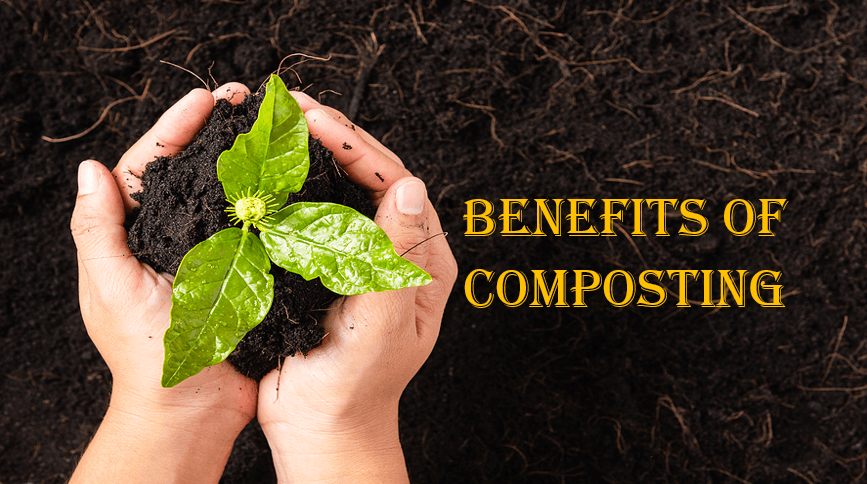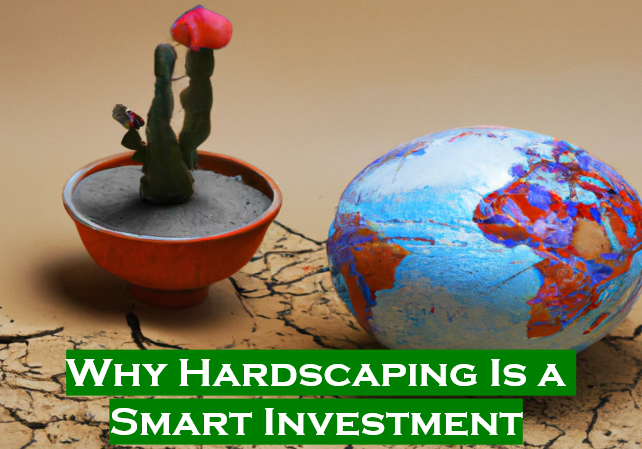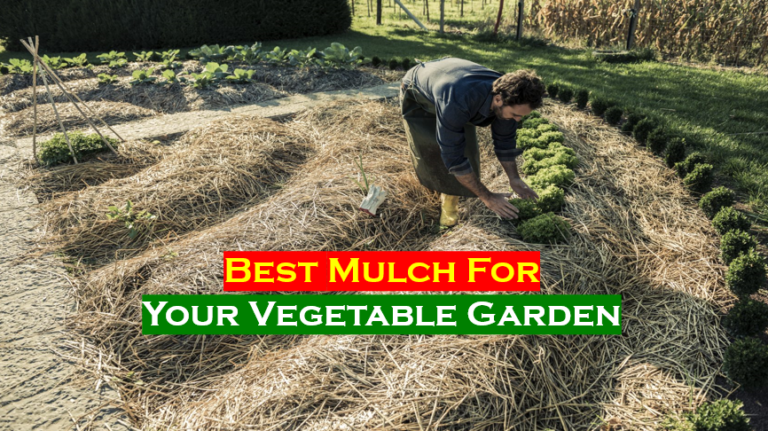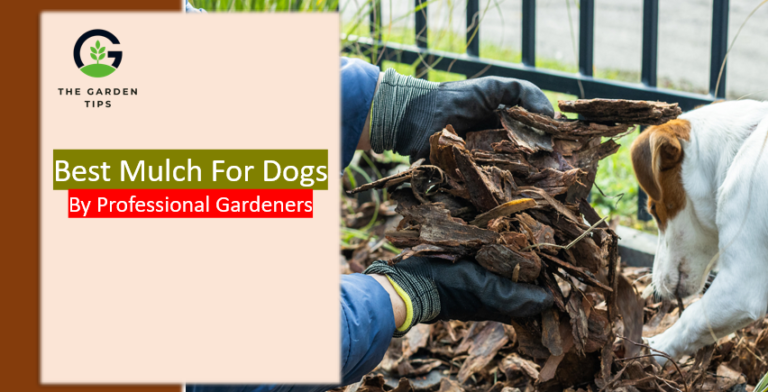Composting is an excellent way to reduce waste, conserve resources, and enhance the environment. Whether it is done on a small scale in a home garden or on a larger scale in a community garden, composting has the potential to make a positive impact on the environment and local communities. By composting, individuals can create a valuable and sustainable resource for their gardens while also helping to reduce their environmental impact.

Home-made compost can be made from various materials commonly found in households, such as fruit and vegetable scraps, coffee grounds, eggshells, and yard waste. These materials, which would otherwise be discarded as waste, can be transformed into valuable resources for plants and gardens. Composting at home is an excellent way to recycle organic material. It helps reduce the amount of waste sent to landfills, which contributes to methane emissions and other environmental problems.
Benefits of Composting
There are numerous benefits to composting, including its positive impact on the environment. Some of these benefits include:
Environment Friendly
- Reduces the waste sent to landfills, reducing methane emissions and other environmental problems.
- Contributes to soil health and fertility, reducing the need for synthetic fertilizers and other chemicals.
- Improves soil structure, allowing for better water retention and improved root growth.
- It provides a source of organic matter, which supports a healthy and diverse soil ecosystem.
- It contributes to climate stability, as composting sequesters carbon in the soil.
Saves money
- Reduces the need for synthetic fertilizers and other chemicals, saving money on garden and landscaping expenses.
- It provides a free source of nutrient-rich soil amendment, reducing the need to purchase expensive soil products.
- Minimizes the amount of waste sent to landfills, reducing disposal fees and other costs associated with waste management.
Promotes Sustainable Gardening
- It provides a sustainable method of recycling organic material, reducing the demand for synthetic fertilizers and other chemicals.
- Supports a healthy and diverse soil ecosystem, promoting healthy plant growth and reducing the need for pesticides and other chemicals.
- Contributes to the long-term health and fertility of the soil, reducing the need for frequent soil replacement or renovation.
Enhances Plant Growth
- It provides plants with essential nutrients, promoting healthy growth and improving yields.
- It improves soil structure, allowing for better water retention and root growth.
- Supports a healthy and diverse soil ecosystem, providing a source of beneficial microorganisms and other organisms that support plant health.
- Healthier soil
Provides essential nutrients for the soil, including nitrogen, phosphorus, and potassium, promoting healthy soil and plant growth. - Improves soil structure, increasing its ability to retain moisture and air, and promoting healthy root growth.
- Supports a healthy soil ecosystem, providing a source of beneficial microorganisms that break down organic matter and release nutrients into the soil.
Reduces Pesticide Use
- Supports a healthy and diverse soil ecosystem, reducing the need for pesticides and other chemicals to control pests and diseases.
- It provides plants with essential nutrients, promoting healthy growth and reducing the need for pesticides and other chemicals to support plant health.
Improves Air and Water Quality
- Reduce methane emissions and other pollutants associated with landfills and waste management practices.
- It improves soil structure, reduces runoff and erosion, and promotes healthy water cycles.
- It supports a healthy soil ecosystem, promoting healthy plant growth and reducing the need for pesticides and other chemicals that can contribute to water pollution.
Encourages Community Involvement
- It allows community members to get involved in local sustainability efforts, promoting awareness and education about composting and other environmental issues.
- Supports community gardening programs, promoting food security, health and wellness, and community involvement.
Reduces Greenhouse Gas Emissions
- Reduces methane emissions from landfills, a potent greenhouse gas.
- It improves soil health, promoting carbon sequestration and reducing the release of carbon dioxide into the atmosphere.
Saves Natural Resources
- Reduces the demand for synthetic fertilizers and other chemicals, conserving natural resources.
- Provides a sustainable method of recycling organic waste, reducing the need for new landfills and other waste management practices.
Enhances Biodiversity
- Supports a healthy soil ecosystem, promoting a diverse community of microorganisms, insects, and other organisms that support plant health and soil fertility.
- Reduces the need for pesticides and other chemicals, promoting a healthy and diverse ecosystem.
Supports Urban Agriculture
- Provides a source of nutrient-rich soil amendment for urban and community gardens, supporting local food production and food security.
- Reduces the demand for synthetic fertilizers and other chemicals, promoting sustainable and environmentally responsible gardening practices.
Improves Soil Structure
- Improves soil structure, promoting healthy root growth, water retention, and air circulation.
- It provides a source of organic matter, supporting healthy soil structure and fertility.
Reduces waste
- Diverts organic waste from landfills, reducing waste and conserving resources.
- Provides a sustainable method of recycling organic waste, reducing the need for new landfills and other waste management practices.
Promotes Sustainable Agriculture
- Supports sustainable and environmentally responsible agriculture practices, promoting soil health and fertility and reducing the need for synthetic chemicals.
- Provides a source of nutrient-rich soil amendment, supporting sustainable crop production and promoting food security.
Encourages Home Gardening
- Provides a simple and sustainable method of enhancing soil health and fertility, promoting home gardening and urban agriculture.
- Supports a more sustainable and locally-based food system, promoting food security and self-sufficiency.Top of Form
Final Words
Composting is a valuable tool for promoting sustainability and enhancing the health and well-being of our planet. Whether done on a small scale in a home garden or on a larger scale in a community garden, composting can provide numerous benefits, including reducing waste, conserving resources, improving soil health, and supporting sustainable agriculture. By embracing composting, individuals and communities can help to create a healthier and more sustainable future for all.







